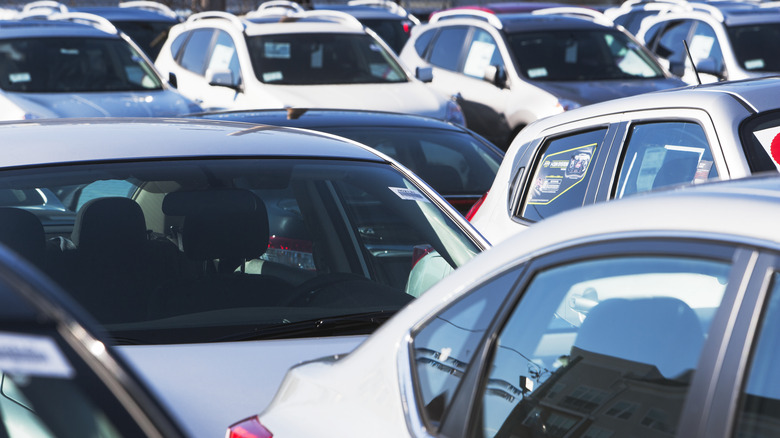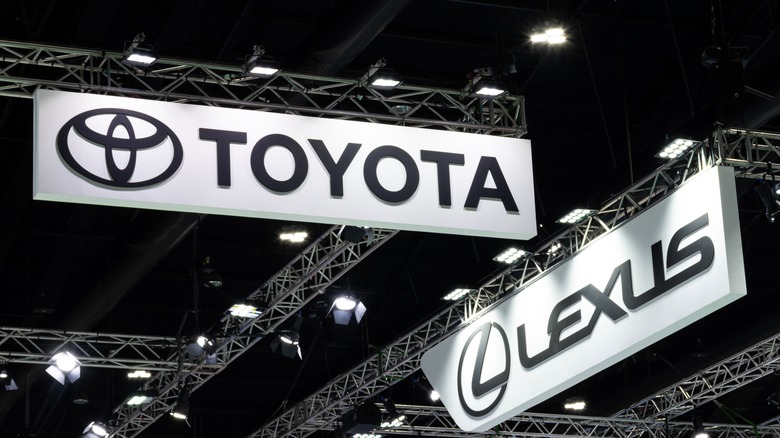Consumer Reports: Toyota And Lexus Lose Top Spot For Reliability
With interest rates remaining high (despite this Federal Reserve committee's decision to finally start dropping the federal rate) chances are good you've held off on buying a new vehicle in the last few years. Whether you were hoping to wait out higher interest rates, or were hoping that car prices might come back down (the average new car transaction price increased 24% from 2019 to 2024, according to CarEdge), you might be disappointed to hear that neither one is likely to happen in 2025.
This means you could be facing the possibility of having to buy, despite increased prices, in 2025. With that mind, given the increased prices and steeper loan terms it's more important than ever to ensure you buy the right vehicle for your needs. This means it is even more important to do your research on not just car brands, but also individual models to ensure you get the exact features and safety ratings that are best for you. While there are many different ways to compare car brands and models, Consumer Reports' annual brand reliability report can be a great place to start when determining what your next vehicle should be. The report is not only based on owner satisfaction ratings but also safety testing and statistics for over 300,000 vehicles that were sold between 2000 and 2025. While most car brands tend to maintain their rankings in the reliability realm, you might be surprised to learn that Toyota (along with its sub-brand Lexus) lost its first place ranking in 2024.
Toyota and Lexus
In Consumer Reports' 2024 reliability report, Subaru took first place while Lexus dropped to second, followed by Toyota in third. The biggest factor that impacted Toyota's rating specifically was that several of its models (the Tacoma, Tundra, and all-electric Toyota bZ4X SUV) all performed below average. For many years before 2024, Toyota generally traded first or second place with Lexus. Meanwhile, the seven models tested for Subaru had favorable performances across the board. The Forester and Impreza both received well above average scores while the Crosstrek, Legacy, Outback, and Ascent all rated either above average or average.
The secret to Subaru's success? Keeping things similar. As Steven Elek, an analyst at Consumers Reports shared, "Subaru's cars share many reliable components. This commonality means that when Subaru redesigns a vehicle, it can make fewer incremental changes by carrying over dependable systems. This reduces the risk of new problems." It's also worth noting that several made-in-U.S. brands ranked at the bottom of the reliability scoreboard. Jeep and GMC both performed poorly, with Cadilac faring even worse. Rivian landed dead last on the list. In fact, 8 of the top 10 brands for reliability were from Asia. The highest scoring domestic U.S. brand was Buick (in 11th place) with all of its included models scoring average for reliability.
Other things to keep in mind
Despite the fact that new cars are $10,000 higher in price than they were five years ago (the average new car transaction price in November 2024 was $48,724, according to Kelley Blue Book), consumers can still find deals when car shopping. According to KBB, car manufacturers have increased their average incentives to almost $3,900 to combat their high inventory numbers. Erin Keating, an analyst with Cox Automotive, explained, "Following the national election, pent-up demand and some improvements in consumer confidence seem to be driving the market. And higher incentives are certainly helping as well."
While manufacturer incentives have still not reached their pre-pandemic levels, at 8% of the transaction value (as of November 2024) they can still help you save money when buying a new vehicle. Plus, some automakers (such as Volkswagen, Ram, Audi, and Nissan) have even offered over 10% in incentives in order to sell their vehicles. Many carmakers are also offering low or even 0% APR financing for certain models (though you might want to wait to finance a car until later in 2025), along with additional perks like cash back, warranties, and upgraded trim packages. However, on the flip side, not all carmakers are offering the same level of incentives with Porsche, Toyota, Land Rover, and GMC offering the fewest incentives. If purchasing a new vehicle is not in your budget yet this year, remember that when, exactly, you buy a vehicle can have a significant impact on the price and deals available to you.


